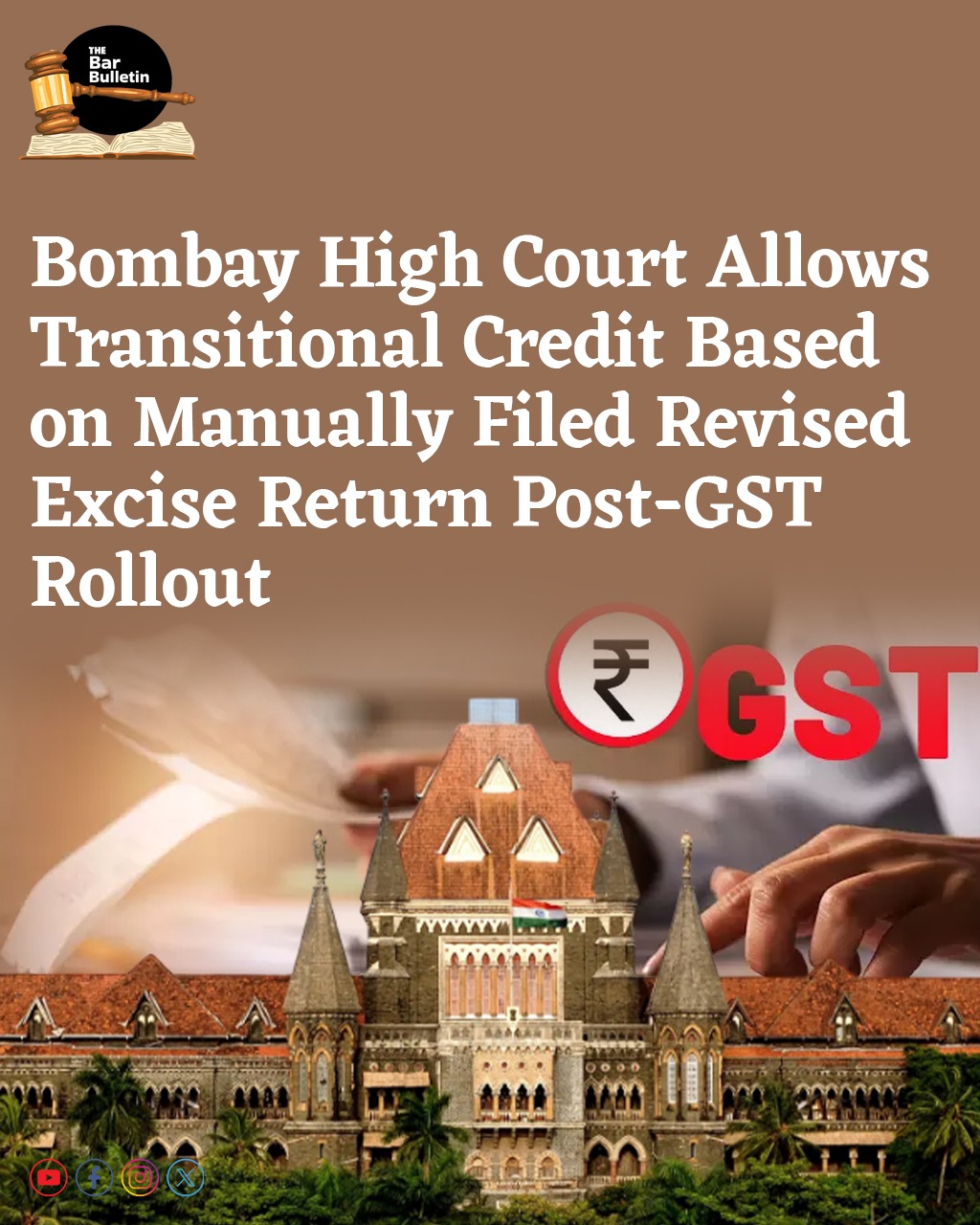The Bombay High Court quashed an order rejecting the petitioner’s revised TRAN-1 form on the ground that its underlying excise return had not been filed electronically. The Court directed the GST authorities to accept the manually filed revised excise return and permit transition of CENVAT credit worth ₹1.16 crore relating to May/June 2017.
The petitioner had originally filed TRAN-1 in August 2017 but failed to include credit from three bills of entry. On realizing the omission, it submitted a manual revised excise return in November 2022 and revised its TRAN-1 accordingly, as permitted by the Supreme Court’s decision in Union of India v Filco Trade Centre Pvt. Ltd, 2022 (63) GSTL 162 (S.C.), which had reopened the TRAN-1 portal for a limited window.
The GST authorities rejected the revised claim citing two reasons: (i) revised ER-1 was not electronically filed as required under Notification No. 4/2010, and (ii) the manual revised return was filed beyond the one-year limit under Rule 4 of the CENVAT Credit Rules, 2004.
Rejecting both objections, the Court observed that post July 1, 2017, electronic filing under the excise regime was no longer possible, and therefore manual revision was the only viable option. It also noted that the petitioner had informed the authorities of the omission within the statutory one-year period and that the revised TRAN-1 was filed within the extended timeline granted by the Supreme Court.
Relying on decisions including Aberdare Technologies Pvt. Ltd v. CBIC, (2024) 21 Centax 227 (Bom.)., Jekson Vision Pvt. Ltd, v. Union of India (2023) 120 GSTR 91 ., and National Internet Exchange of India v. Union of India 2021 (147) G.S.T.L. 225 (Del.), the Court held that substantive rights cannot be denied due to procedural limitations, particularly when there is no loss to the revenue.
Accordingly, the Court quashed the order dated 27 February 2023 and directed the authorities accept the revised excise return filed manually by the petitioner on 23 November 2022 and, consequently, permit the transition of Rs. 1,16,29,351/- being the CENVAT credit with respect to 3 Bills of entry for the month of May/June 2017. They were also directed to complete the exercise within a period of eight weeks from the date of uploading the present order.
Appearances:
Petitioner: Ms. Priyanka Rathi a/w Mr. Prasad Avhad i/by Mr. Kuldeep U. Nikam
Respondent: Mrs. Neeta Masurkar a/w Mr. Harshad Shingnapurkar
![]()
Johnson Matthey Chemicals v. Union of India



